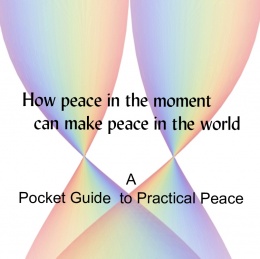practical peacehow peace in the moment can make peace in the world |
||
TheyOct 28, 03:29 pm 
“They” We think more clearly when we step into the systems realm. From here we can see that the dominance paradigm is a model of the world in which there is not enough and survival itself depends on maintaining and advancing a position in the competitive order. It defines individual humans as apart from one another and all other natural systems. In this schema, the natural world is a threat, a competitor, as well, and must be also be dominated. We can see how this way of organizing human life causes great suffering and threatens the natural systems that we know we depend on. The response to this knowledge, in the dominance paradigm, is to define it as separate, fear and hate it, try to crush it. This way of thinking keeps our vision narrowly focused on the points of power difference where it is hard to bring change. We are blind to the many other points where this system is organizing and reproducing itself, where our actions might quite possibly effect astonishing changes. A purely oppositional stance can stifle deep change. It invites us to gloss over the unique individuality of each person in every place in the human system. This dominance order emerges from the world models and actions of countless individuals. All of them are in a constant, complex potential for additional or different possibilities, including mutualistic ones. From the point of view of organic systems, we can regard the dominance order without judgment and hatred. We can understand that a dominance paradigm arises in human societies from particular historical conditions and particular pieces of human potential that developed and persisted because they have at some time served our species’ survival. We can even feel compassion for the aspects of our human selves that it expresses. We can act creatively and ardently to shift our human system out of its current dominance state into other possible states. In an organic, connected world, there is no “they.” I want to revisit the analogy of the yeast colony, made up of cells with two possible rates of metabolism. One is fast, even driven, and the organisms with this mode compete extremely well, out-producing the other type. However, the fast producers cannot keep up with the need to clear the environment of the toxic byproducts of their own existence. The slower metabolizers are in a more sustainable equilibrium with their environment. They can detoxify not only their own byproducts, but some amount produced by fast metabolizers as well. In yeast colonies with a certain concentration of fast metabolizers, that way of being outpaces the whole colony’s capacity to detoxify the environment, and the colony collapses. In colonies where there are enough slower metabolizers, the colony flourishes. One yeast cell’s future does not depend on its own moral virtue or its own competitive propensity to outproduce others. Every cell’s future depends on the system’s own state—more cooperators, system thrives; more dominators, system collapses. Our whole biome’s vulnerability to the dominance paradigm is like the overheated state of the yeast colony. So far, the scientists who have studied the yeast have not defined any way in which yeast cells can influence the outcome of their systems (although my intuition is that all of these beings have more capacities than we usually imagine for them). But we can influence the outcome of our system. We can turn our earth/human system toward something sustainable, away from collapse. Not by killing off or fighting the “selfish” or “dominant” individuals, but by out-cooperating them! Subverting the dominance paradigm requires that we increase the cooperative or mutualistic activity in the whole system. As a guide to action, this concept is open ended, ubiquitous, and scalable—all the qualities that have the greatest influence in changing the outcomes in complex adaptive systems. |
||
About Katherine PowerI didn’t set out to be a terrorist. As a student activist, I moved from protesting the war in Viet Nam to waging guerrilla war to overthrow the government…. |
||
I’m Following...Kathleen Dean Moore |
||